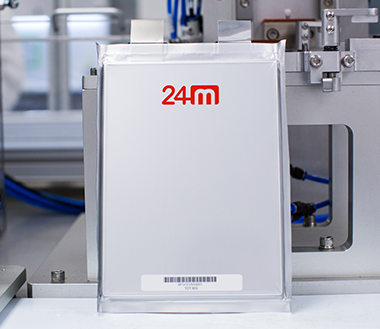TRANSFORMATION5:Business Expansion in Accordance with a Decarbonized Society
(Distributed Power System Supply Platform)

In addition to the transition toward a decarbonized society and growing social demands, the recent surge in prices for electricity and fuel cost have also led to steadily increasing needs for construction and third-party ownership of power generation assets for self-consumption for downstream users, energy storage systems to regulate supply and demand, and energy management systems to control all the above in an integrated manner. ITOCHU has established a lineup of diverse decarbonization solutions and, going forward, will further enhance this lineup to help create a decarbonized society.
Power Generation
ITOCHU concluded a capital and business alliance agreement with Clean Energy Connect, Inc. (CEC) and subscribed to shares CEC issued through a private placement. CEC, a supplier of clean energy with “additionality*1,” aggregates green power by developing a number of small-sized solar power plants by making effective use of idle land in Japan and then provides power to environmentally advanced companies such as the NTT Group and The Dai-ichi Life Insurance Company, Limited. that prioritize clean energy procurement. By FYE 2026, we aim to introduce solar power plants in approximately 5,000 locations in Japan with a cumulative total output of 500 MW, aiming to be one of the largest off-site Corporate PPA*2 operators in Japan. While ITOCHU, through its undertaking with VPP Japan, Inc., has one of the largest cumulative operating capacity in Japan for the rooftop model (on-site PPA), approximately 340 plants with a cumulative 70 MW as of March 31, 2022, the partnership with CEC enables ITOCHU to also provide clean power to customers who do not have adequate rooftop space for an on-site PPA.
*1 Introducing power supply from renewable energy sources without relying on the feed-in tariff program, such as by newly building a power plant exclusively for its own use by a company.
*2 Developing and installing a solar power plant, exclusively for its own use by a company, in a place away (off-site) from the premises of facilities that use the generated power and signing a long-term contract under which the generated electricity is sent to the facilities using it along with environmental value.
Energy Storage
 For renewable energy, demand-supply adjustment tends to be unstable and challenging, and the need for energy storage systems is increasing. U.S.-based 24M Technologies, Inc. (24M) is a company that develops and licenses semi-solid lithium-ion cells, which are key component of energy storage systems. The company has re- designed the manufacturing process and enabled the supply of price-competitive products. Furthermore, the company’s energy storage systems have excellent recyclability, spurring a transformation in battery manufacturing technologies, which had not changed for several decades. Praise of these technologies has also extended to automotive applications. Germany-based Volkswagen Group announced in December 2021 that it subscribed to shares the company issued and signed a licensing agreement. This demonstrates our foresight to seize on the trends in the rapid adoption of EVs and in SDG business opportunities by leveraging the relationships we built through the energy storage system business. By supplying parts to mass producers globally and cultivating partnerships for licensing 24M, we will continue helping to build a stable supply system for semi-solid lithium-ion batteries.
For renewable energy, demand-supply adjustment tends to be unstable and challenging, and the need for energy storage systems is increasing. U.S.-based 24M Technologies, Inc. (24M) is a company that develops and licenses semi-solid lithium-ion cells, which are key component of energy storage systems. The company has re- designed the manufacturing process and enabled the supply of price-competitive products. Furthermore, the company’s energy storage systems have excellent recyclability, spurring a transformation in battery manufacturing technologies, which had not changed for several decades. Praise of these technologies has also extended to automotive applications. Germany-based Volkswagen Group announced in December 2021 that it subscribed to shares the company issued and signed a licensing agreement. This demonstrates our foresight to seize on the trends in the rapid adoption of EVs and in SDG business opportunities by leveraging the relationships we built through the energy storage system business. By supplying parts to mass producers globally and cultivating partnerships for licensing 24M, we will continue helping to build a stable supply system for semi-solid lithium-ion batteries.
Strengthening Energy Management
In an effort to enhance energy management functions that comprehensively control power generation and power storage, we strengthened our capital and business alliance by subscribing to shares of i GRID SOLUTIONS, Inc. (i GRID) issued through a private placement. By utilizing the power big data analysis and energy storage management technologies which are i GRID’s strengths, ITOCHU now offers next-generation energy platform services that facilitate the local circulation of renewable energy. This is done by controlling solar power, energy storage systems, EV chargers, etc., in an integrated manner and by networking each distributed solar power plant. For example, some supermarket delivery vehicles were switched to EVs, allowing the charging / discharging cycle to be controlled optimally by AI in response to facility power use, the status of solar power systems generation, remaining charges in energy storage system and EVs, and the delivery schedule. We are advancing from a proof-of-concept stage to full implementation for this project.
Going forward, we will continue to contribute further to create a decarbonized society by enhancing the diverse lineup of our decarbonization solutions.
Evolution of Value Chains, Starting with FamilyMart TRANSFORMATION2:Self-Transformation in Anticipation of Changes in the Market of the ICT & Financial Business Company
